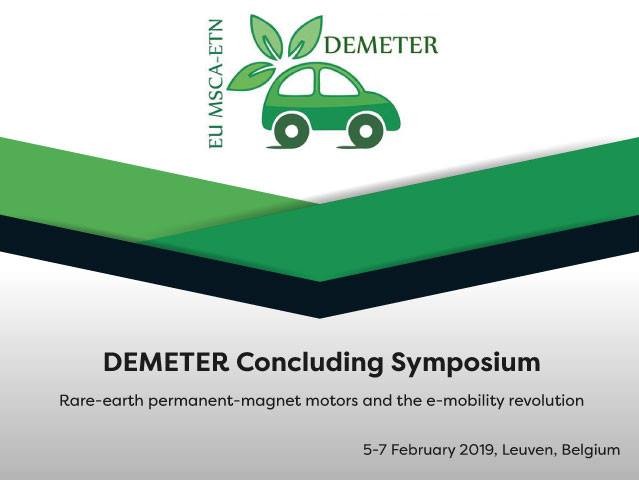DEMETER Concluding Symposium on Rare-Earth Permanent-Magnet Motors and the E-Mobility Revolution

"We have to be very vigilant that today's dependency on fossil fuels like oil and gas is not replaced by dependency on lithium, cobalt, copper and other raw materials that we need for the green transition," said Maroš Šefčovič (vice-president European Commission - Energy Union) in a truly excellent EURACTIV interview. A better introduction to the ETN DEMETER Concluding Symposium in Leuven (5-7 February, 2019) could not be invented...(https://symposium.etn-demeter.eu)
Nevertheless, the green credentials of electric vehicles (EVs) are often questioned, in many cases by the guardians of the status quo who have vested interests in unabated sales of diesel and petrol driven cars. In a recent report by the European Environment Agency, it is concluded, however, that "battery electric cars emit less greenhouse gases and air pollutants over their entire life cycle than petrol and diesel cars. (…) Promoting renewable energy and circular economy (…) will help maximise the benefits of shifting to electric vehicles."
So which technologies will make up the future EVs? Which e-motor will dominate? Will the rare-earth permanent magnet-based e-motor prevail or will the induction motor win the battle? And what about the energy supply for these e-motors? Which new permanent magnet phases will be developed? Will they still contain rare earths? Will the supply of rare earths and cobalt be sufficient to support the huge growth in EVs? Will recycling be able to contribute to the supply of these critical metals? Do we need to open new mines for rare earths in Europe? These are just some of the questions that will be tackled in the DEMETER Concluding Symposium.
More information on the Symposium:
Programme: https://symposium.etn-demeter.eu/programme/
Keynote Speakers: https://symposium.etn-demeter.eu/keynote-speakers/
Registration: https://symposium.etn-demeter.eu/registration/
Keywords
electric vehicles, rare earths, permanent magnets, e-mobility, sustainability, clean technology, Recycling, e-motor, transport, circular economy, automotive, renewable energy, climate change


